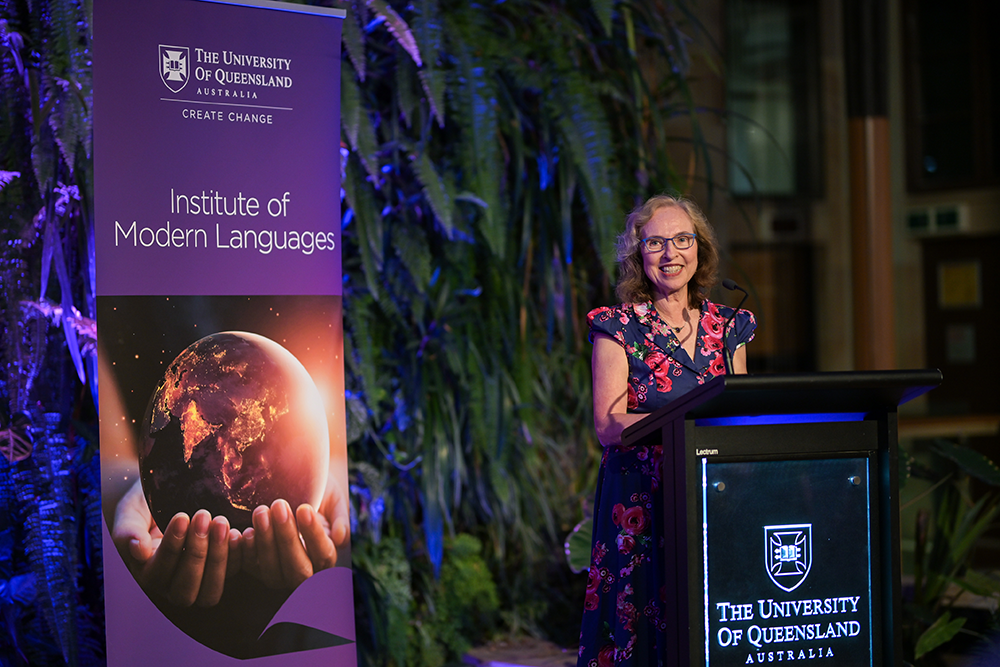
The Institute of Modern Languages (IML) celebrated their 90th Anniversary last month, reflecting on how much it has grown - today offering courses across more than 30 languages to its 2637 enrolled students.
What a change from when IML first opened its doors on 11 May 1934 to its first intake of 78 students who could choose to study 1 of 3 languages only – French, German, or Italian.
IML was the first adult education extension unit in modern languages to be attached to an Australian tertiary education institution. It was designed to cater for those whose needs were not served by secondary schools or by the university.
Ninety years on, IML continues to cater for students from diverse backgrounds, including those currently engaged in the workforce, as well as international students and retirees.
For the past 12 years it’s run a course entitled ‘Modern Greek for Aspiring Archaeologists’.
For the past decade it’s been working with the Australian Defence Force to deliver courses in 25 languages, including Arabic, Fijian, Malay and Vietnamese.
For nearly 25 years, IML’s translation service has been busy not just across UQ but translating languages for government departments and business and other universities in Queensland.
IML remains an important part of UQ’s commitment to the Queensland community, in which more than 13 percent of people now speak a language other than English at home.

This event also celebrated the leadership of IML Director, Georgiana Poulter, who plans to retire from her position later this month, with Pru Rolff taking on the new role of Institute Manager for IML.
Georgiana was 16 when she began studying at IML, and 25 years ago she was appointed its director.
After a long career in adult learning and teaching and a life-long learner herself, Georgiana plans to continue learning and contributing to our society, but in different ways.
“One way will be through the University of the Third Age (U3A) which is a worldwide self-help organisation promoting learning for personal enjoyment and wellbeing.
“I also hope to play a small part in promoting, protecting, preserving and advocating for green spaces by becoming a steward of the rare bushland gem, Banks St Bushland Reserve,” she said.
When asked to name a highlight of her time at UQ, Georgiana said the 2007 Language of the Month collaboration with the School of Languages and Comparative Cultural Studies, Modern Language Teachers Association (MLTAQ) and 612 ABC Brisbane was at the top of her list.
“What a coup! What a great way to get the community interested in the topic of language learning and to stimulate discussion about languages!” she said.
A new language was offered each month for 10 months on Madonna King’s show, where language teachers discussed common phrases and language nuances.
Another standout for Georgiana was overcoming the challenges that COVID19 caused, including transitioning 1,000 IML students and 60 tutors to online learning in one week.
“We grabbed the moment to expand IML's reach to people, especially in regional and remote areas, who could benefit from IML’s online language courses - providing opportunities for budding language learners in small towns, remote areas, larger regional areas and other capital cities,” she said.
Online language courses gave students across the country access to language learning opportunities that they didn’t think would be possible just a couple of months earlier.
“From an Australian 11th grader in Japan to an 80-year-old man in a SE Qld town of 500 people, to defence personnel in Adelaide, they were enrolling to learn Chinese, Korean, Japanese and Russian - important languages for the future of successful global relationships.”
Languages aren’t barriers; they’re bridges, and Georgiana believes by learning a language, you gain insights into ways of thinking in other cultures and respect for diversity.
Looking to the future, as Australia is becoming increasingly multilingual, IML will continue to be an advocate for language learning, as not only an empowering experience, but also as a bridge to cultural understanding and acceptance.
People learn languages today for the same reasons they always have, for work, for travel, for family, and for love.
More photos from the celebration can be viewed here.



